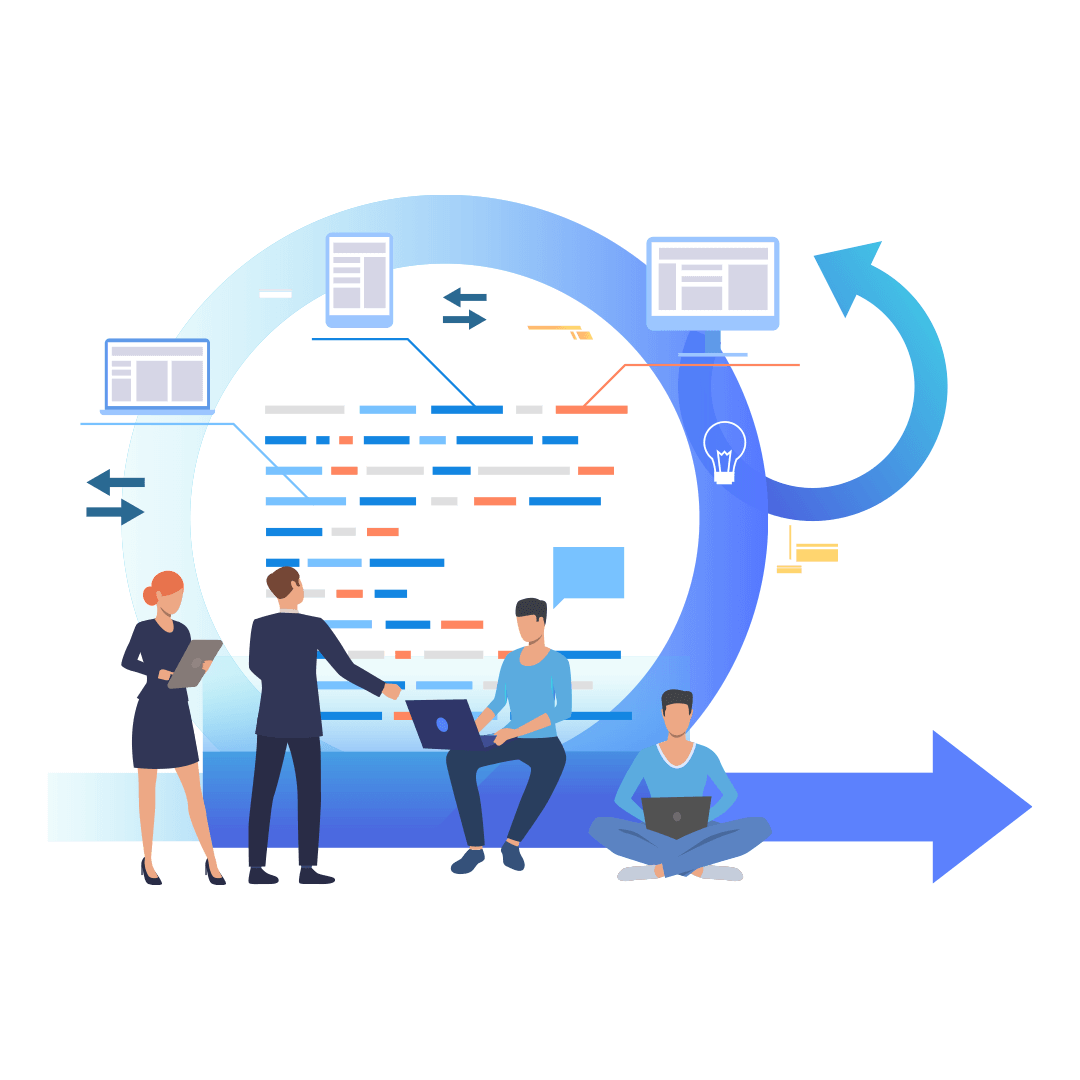

February 4, 2023
Agile methodology is a set of principles and practices for software development that emphasize collaboration, flexibility, and customer satisfaction. The Agile approach began in the early 2000s as a response to the issues with traditional, waterfall-style project management. waterfall methods tended to be inflexible and didn’t allow for much collaboration between developers and customers.
In contrast, Agile methodology is based on the principle of “iterative and incremental development.” This means that projects are divided into small, manageable pieces, or iterations. each iteration includes all steps from planning to testing and deployment. This allows for frequent customer feedback and course corrections throughout the project. As a result, Agile projects are typically more successful than those managed using traditional methods.
DevOps is a term for a set of practices that combines software development (Dev) and information-technology operations (Ops). The goal of DevOps is to shorten the time between committing a change to code and the change being deployed to production. In order to achieve this, DevOps teams use automation to build, test, and deploy code changes. Additionally, they use tools and techniques such as continuous integration and continuous delivery to speed up the process. By automating the software development lifecycle, DevOps teams can release new features and updates more frequently and with less risk. As a result, they are able to respond faster to customer demands and market changes.
There are a number of tools and practices that are commonly used in DevOps, such as continuous integration (CI), continuous delivery (CD), microservices, and containerization.
CI/CD is a process in which code changes are automatically built, tested, and deployed to production environments. This helps to ensure that new features can be delivered quickly and efficiently. Microservices is an approach to software development that focuses on breaking down applications into small, independent services. This makes it easier to develop, test, and deploy code changes.
Containerization is a method of packaging applications so that they can be run in isolated environments. This allows for greater flexibility when deploying applications to different environments.
Agile and DevOps are both software development approaches that emphasize collaboration, flexibility, and customer feedback. However, there are also some key differences between the two.
Agile focuses on short development cycles, called sprints, which allow for constant delivery of new features. DevOps, on the other hand, emphasizes continuous integration and delivery of software changes. This means that new code is always being delivered to production, and there are no formalized release cycles.
Agile is iterative and incremental, while DevOps is continuous. Agile focuses on the individual user story or feature, while DevOps focuses on the end-to-end flow. Agile is about self-organizing teams and delivering value quickly, while DevOps is about cross-functional collaboration and optimizing the entire delivery process. In Agile, development and operations are two separate phases; in DevOps, they are integrated.
Both approaches aim to improve the speed and quality of software development, but they do so in different ways. Agile is more focused on individual development teams, while DevOps aims to optimize the entire software development life cycle.
As a result, DevOps requires a more holistic view of the process and greater coordination between different teams. Ultimately, both Agile and DevOps can be used to improve software development, but it’s important to choose the right approach for your specific needs.

While the agile approach has been around for several decades, it has only gained widespread popularity in recent years. There are many reasons for this increase in popularity, but the most commonly cited benefits of agile include its ability to improve communication, reduce project risks, and increase customer satisfaction. The agile approach is also flexible and adaptable, making it well-suited to today’s fast-paced business environment. As more and more organizations embrace agile principles, there is no doubt that the methodology will continue to gain popularity.
DevOps is important because it helps organizations respond quickly and efficiently to changes in the market or customer demand. For example, if a customer reports a bug in a software application, DevOps allows the development team to fix the problem and push out an update quickly, without having to wait for the next scheduled release. This can help to improve customer satisfaction and loyalty.
In addition, DevOps can help to reduce costs by streamlining processes and eliminating waste. By automating tasks and increasing collaboration between teams, DevOps can help organizations save time and money. As a result, DevOps is becoming an essential part of many businesses.
If you are trying to decide whether to use Agile or DevOps for your business, it’s important to understand the difference between the two approaches which are discussed earlier in the blog. Both Agile and DevOps can be beneficial for businesses, but it’s important to choose the right approach for your specific needs. If you need a flexible and adaptable approach, Agile may be the better choice. If you’re looking for a more efficient and streamlined delivery process, DevOps may be a better fit. Ultimately, the best way to determine which approach is right for your business is to experiment and see what works best for you.
Looking for the best DevOps solution for your business? Look no further than Xeven Solutions. We provide top-notch DevOps consulting services to help businesses streamline their software development process and take their operations to the next level. Our team of experts specializes in devops software development and can provide customized solutions that fit your specific needs and requirements. So, if you’re searching for the best devops solution, look no further than Xeven Solutions. Contact us today to learn more about our services and how we can help you take your business to the next level.